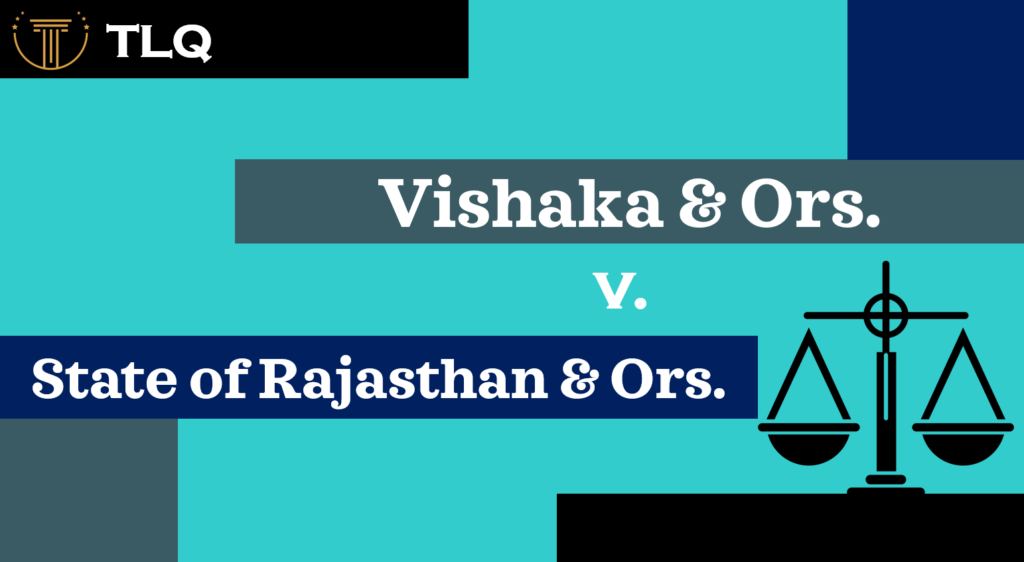Published On: 27th November, 2024
Authored by: Surbhi Bharti
Chotanagpur Law College Ranchi
|
CITATION |
Appeal No. 7247 SC 2024 |
|
DATE OF JUDGMENT |
8th July 2024 |
|
COURT |
Supreme Court of India |
|
APPELLANT |
Bombay Slum Redevelopment Corporation |
|
RESPONDENT |
Samir Narain Bhojwani |
|
BENCH
|
Justice Abhay S. Oka and Justice Pankaj Mithal |
INTRODUCTION
The case of Bombay Slum Redevelopment Corporation Pvt. Ltd. vs. Samir Narain Bhojwani decided by the Supreme Court of India on July 8, 2024, is a significant judgment in the realm of arbitration law in India. It highlights procedural inefficiencies within arbitration proceedings and judicial concerns regarding the handling of slum redevelopment projects. The case involved complex issues relating to contracts between developers, contractors, and slum rehabilitation societies under the Maharashtra Slum Redevelopment Act.
FACTS OF THE CASE
- In 1993, the Maharashtra Housing and Area Development Authority (MHADA) executed a lease agreement with the Andheri Kamgar Nagar Co-operative Housing Society Limited, a group of slum dwellers. The society appointed M/s. Aurora Properties and Investments to develop the land, which involved building tenements for slum dwellers and project-affected persons. However, Aurora failed to fulfill its obligations, leading to the involvement of the appellant, Bombay Slum Redevelopment Corporation Pvt. Ltd. (BSR).
- BSR entered into an agreement with the respondent, (Samir Narain Bhojwani) in 2003, granting him 55% of the available Floor Space Index (FSI) for construction, while BSR retained the remaining 45%. Bhojwani was tasked with constructing the free-sale portion of the property. In 2012, a dispute arose when Bhojwani accused BSR of defaulting on contractual obligations. The matter escalated, leading to arbitration proceedings, and the Arbitrator ruled in Bhojwani’s favor in 2018.
- BSR challenged the arbitral award under Section 34 of the Arbitration and Conciliation Act, and the Single Judge of the Bombay High Court ruled in BSR’s favor. However, this decision was reversed by the Division Bench, prompting both parties to file cross-appeals in the Supreme Court.
ISSUES RAISED
- Whether the arbitral award in favor of Bhojwani was justified, considering the obligations and agreements between the parties.
- Whether the Single Judge was correct in setting aside the award under Section 34 of the Arbitration Act.
- Whether the Division Bench correctly reversed the Single Judge’s decision, leading to further delays and inefficiencies in the process.
- The broader issue of whether arbitration proceedings, as conducted in this case, were efficient, cost-effective, and in line with the intended purpose of arbitration laws in India.
CONTENTIONS OF APPEALENT
- On the Arbitral Award: BSR argued that the arbitrator’s decision was flawed as Bhojwani had not adhered to his contractual obligations. They contended that the Arbitrator failed to consider critical evidence and awarded damages without proper justification.
- On the High Court’s Judgment: BSR supported the Single Judge’s decision under Section 34, claiming that the arbitral award was liable to be set aside due to procedural irregularities.
- On the Development Agreement: BSR emphasized that they had fulfilled their obligations under the development agreement and that Bhojwani was responsible for the delay and defaults in construction.
CONTENTIONS OF REPONDENT
- On the Arbitral Award: Bhojwani argued that the Arbitrator’s decision was based on factual findings that were well within the scope of the arbitration. He claimed that BSR had defaulted on its promises under the agreement, leading to losses and delays.
- On the High Court’s Judgment: Bhojwani contended that the Division Bench was correct in setting aside the Single Judge’s ruling, as it was beyond the narrow scope of Section 34 to review the merits of the case.
- On the Development Process: He maintained that BSR’s actions led to significant delays and losses, which justified the award granted by the Arbitrator.
JUDGEMENT
The Supreme Court addressed both the legal and factual contentions raised by the parties. The Court highlighted concerns over the lengthy arbitral proceedings, noting that the award ran into 139 pages, while the petitions under Sections 34 and 37 were similarly voluminous. The Court observed that arbitration was intended to provide a swift and cost-effective alternative to litigation, yet this case exemplified how arbitration had become an equally time-consuming process.
The Court ultimately decided to partially allow the appeals, set aside the impugned judgment of the Division Bench and remanded the case back to the Bombay High Court for further consideration on the merits. The Court stressed that arbitration proceedings must adhere to principles of brevity and efficiency, ensuring that they do not mirror traditional court processes in terms of complexity and length.
ANALYSIS
The judgment raises important points about the efficiency of arbitration proceedings in India. The Court criticized the increasing trend of relying on bulky pleadings, excessive reliance on precedent, and unnecessarily long awards. These trends were viewed as counterproductive to the purpose of arbitration, which is meant to be a swift and less formal method of dispute resolution.
The case also underscores the challenges posed by slum redevelopment projects in India. Such projects, often marred by delays and disputes, highlight the complexities of balancing the interests of slum dwellers, developers, and contractors within a legal framework. The Court’s decision to remand the case signals the need for thorough judicial scrutiny in matters that impact vulnerable populations, such as slum dwellers.
CONCLUSION
The case of Bombay Slum Redevelopment Corporation Pvt. Ltd. vs. Samir Narain Bhojwani serves as a landmark in the context of arbitration law and slum redevelopment disputes in India. The Supreme Court’s judgment highlights the inefficiencies that have crept into arbitration proceedings, urging all stakeholders to introspect and adopt a more streamlined approach. Moreover, the case sheds light on the broader challenges facing slum redevelopment projects, where the interests of multiple stakeholders must be carefully balanced to ensure fair and effective outcomes.
REFERENCES
- SSC Online
- Indian Kanoon Blogs
- Supreme Court Cases




